|
The Peace Horse Blog is now "Peace Horse Journey" and is hosted on Wordpress. Old blog posts will remain archived here. Click HERE to visit the new blog! Peace Horse Journey
Hi, I’m Cheryl. Author, Horse Midwife, Usui Reiki Level 2 certified, horse trainer, artist, equine behavior specialist, and all-around lover of horses. Peace Horse Journey is a blog about horse-guided self-discovery, and helpful hints about how to best understand and care for our equine friends
0 Comments
We all have a choice when we mount up--to wear a helmet or not. The choice is up to the individual. Below is a handy quiz to help you decide if you should wear a helmet when you ride: Answer the following questions as either TRUE or FALSE as they apply to you: Now, tally up your responses: for every time you answered “true,” give yourself 1 point. For every time you answered “false,” give yourself 5 points. Questions 1-3 – If you answered true to these questions, congratulations on your achievements! These three things will undoubtedly help you stay topside and therefore reduce the risk of a Traumatic Brain Injury (TBI) from a fall. Unless #7 is False—that significantly reduces the amount of safety your level of skill/experience provides you. Questions 4-10 – yes, I’m being a smart-ass, but these are the things we don’t think about. If I had a nickel for every time someone implied they were somehow exempt from brain injury because they were (place ridiculous claim here), or how it’s their body, their choice (which is true, it is)—I’d have a barrel full of nickels to donate to the Brain Trauma Foundation. The fact remains, horses are unpredictable, people make mistakes, freak accidents happen, and gravity is a constant feature of planet earth. Questions 11-15 – This is really the point of this little exercise—to raise awareness that your decision to wear (or not wear) a helmet is not only about you. Unless your answer to questions 12-14 is “true,” then…well, no still not just about you, because someone will have to take care of you. Post TBI injury care can include (but is not limited to): teaching sufferer how to walk, feed self, wipe bottom, speak, move arms, move legs, grasp objects, write, and read—hopefully you will be able to relearn all those tasks. Otherwise you may need someone to clean and maintain your respirator, change your diaper, bathe you, feed you (or clean your feeding tube), turn you so you don’t get bed sores, etc. A recent study discovered that the annual cost of treating/managing a person with a traumatic brain injury (TBI) ranges from $25,000-$81,000 every year for the life of the patient. The daunting cost of treating/managing the TBI patient is compounded by the fact the sufferer of the TBI is often unable to return to work at the same level or in some cases, at all. The study further found divorce was not uncommon with TBI sufferers in the years following their injury, citing extreme emotional and financial stress as the reason for divorce or separation. If you have no family, no friends, and no money, and/or not enough insurance, then your lifetime care will fall on the taxpayers and the welfare system. You might now be thinking, “Well, why do anything risky? Why drive, why fly, why do extreme sports, why keep riding?” My goal is not to scare you out of everything fun. Have adventures, drive on the interstate, ride that crazy mare that hates everyone, jump the big jumps, climb the mountain, go to an Elephant rally wearing a Donkey shirt—do those crazy, fun, dangerous things if the thought moves you, but take the safety precautions available to you—buckle your seat belt, wear the helmet, learn how to tie good mountain climbing knots, and leave the Donkey shirt at home—or avoid the Elephant rally—whichever. It just makes good sense. Oh yeah, scoring the quiz: If you scored anywhere from 0-75 points: you should definitely wear your helmet. 76 points or more: check your math, and definitely wear your helmet. Every ride, every time. I want a super rare, glossy, gold charm running foal! Easy-peasy…if you’ve got the cash, you can find the horse! Start with Ebay…if you can’t find one there you could try the Model Horse Sales Pages, make a posting on one of dozens of dedicated Facebook pages, or message boards, or chat rooms (do they still have those?), or maybe even Craigslist. It might take you a couple hours, or worse, a couple days, but you’ll find that elusive plastic treasure...it’s almost a guarantee. But wait…we didn’t have any of those things in 1989. The internet as we know it today existed only in the imaginations of people who are now much richer than I’ll ever be. Those of you who are children of the 1980s and earlier know what I’m getting at…the internet has changed the face of Breyer horse collecting forever. It has influenced values, changed our perceptions of what is truly rare, and produced an entire generation of kids and young adults who have no idea what an LSASE is. I received my first Breyer for my 11th birthday in 1987, a gift which started a life-long fascination with and at times inexplicable desire to purchase and prominently display horse-shaped hunks of plastic. I had a favorite store I purchased the bulk of my early collection from; an IGA/Ben Franklin store that had an entire back wall filled with glorious horses formed from hard, odoriferous, tenite plastic! I’d happily plunk down two weeks of hard-earned allowance to take home one more horse to add to my slowly growing collection. Part of the exhilaration of getting a new model horse was the catalog that came in the box. I’d pore over the catalog circling each horse I wanted and hoping against hope the elusive Appaloosa yearling (I was going to name Sandy) or dapple grey Proud Arabian Stallion would be at the IGA the next time I was there (they never were). The catalogs introduced me to models I’d never seen before. Occasionally, I’d find a discontinued model still on the store shelf. With trembling fingers I’d grab the rarity and hold it close, protecting it from the imaginary prying, covetous eyes of fellow shoppers. In my young mind finding new in box models with catalogs as far back as 1984 was like finding a rare antique in a flea market. The “old” catalogs were a highly prized part of my collection. As a subscriber to Just About Horses, the Breyer model horse publication, I learned of rare and unusual models from the prehistoric era of the 1960s. They were called “Woodgrains” and “Decorators,” there was the “Old Mold” Proud Arabian Mare and various Special Runs of decades gone by. These elusive models seemed far beyond my reach…they were so rare, how could I ever hope to own one? I dreamed of walking into an antique store some day and finding one of these priceless plastic horses…even to see or, (dare to dream!) touch it would be an honor beyond imagination. The Search The pre-internet era search started in the classified section of JAH magazine. There were dozens of tiny classified ads with lists of model numbers for sale. No prices, no descriptions aside from the 1-4 rating scale many collectors used. Some ads simply said “Entire collection dispersal. Send LSASE for list” followed by an address. Those ads were my favorite, to get a list of models for sale in the mail was like stumbling into a secret store with a nearly inexhaustible supply of never-before-seen models! Box catalogs in hand, I scoured the sales lists for the models I was looking for. If I found one I liked I could call and ask if it was still available (if a phone number was given), or I would write down the model I wanted on a piece of paper, put it and a check for the correct amount into an envelope, stick it in the mail and hope that the model would show up on my doorstep in a few weeks’ time. Sometimes, the check would come back with a note explaining the model had been sold. Luckily, I never ran across a dishonest seller who simply cashed my check without sending a model. On some of the lists I received I found some of those rare models from yesteryear with exorbitant prices due to their extreme scarcity: Woodgrain FAS +3 (few rubs) $350 Gold Florentine Running Foal +2 (chipped ear, rubs) $2500 1990 Commemorative Edition (like new) $1500 I could only dream of such riches to add to my collection! Some of you may be eyeing those prices and wondering what happened? How could anyone ask those prices? Especially over 25 years ago? Enter: the internet Yes, the internet. Ebay taught us that our uber-rare models were not as rare as we thought they were. As soon as the Woodgrains hit Ebay and sold for hundreds of dollars each, dozens more came out of the wood work (pardon the pun) – supply soon surpassed demand and drove the prices down to never before seen lows! I got mine in 2002 for $25. There are a surprising number of Old Mold Proud Arabian Mares hanging around the internet. Not nearly as common as a Woodgrain Family Arabian Stallion but still possible to get the most common, the glossy Alabaster, for an affordable $50-$60, less if you’re not too picky on condition. The “ultra-valuable” Limited and Commemorative Editions? Yup…nope. You can’t even get your money back out of those anymore. I’d seen the 1987 Limited Edition “Precipitado Sin Par” on a sales list for over $100 and therefore was tickled pink paisley plaid when I found the same model still on a store shelf in 1989 and snatched it up for a measly (but expensive for the time) $24. That Commemorative Edition ASB weanling from 1990? I saw that on a sales list for $1500 in the early 1990s. Picked it up at Breyerfest a few years ago for $20. There are some rarities that still are, well, rare. The Decorators still command high prices…turns out they really are rare. A mid 1990s collector’s guide listed the glossy Appaloosa Proud Arabian Mare as “rumored to exist” – they do exist, I’ve seen two. Glossy Honey Bay Proud Arabian Mare, you can find it but it will cost you. Not as much as in the 1980s but still pricey. Black point Proud Arabian Family? Still rare but you can find them as well. Pre-internet you’d better be prepared to pony up several hundred dollars each (yeah...no pun intended). Now, less than half that, perhaps much less depending on the day and your bidding competition. 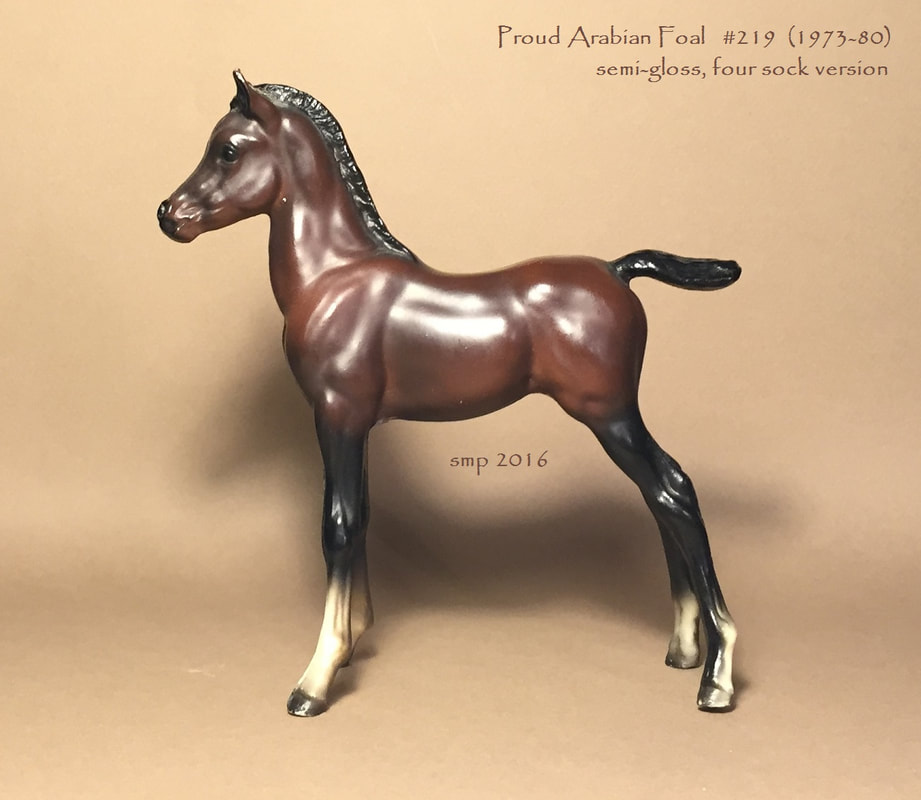 A pre-internet purchase. Found this PAF on a sales list in the early 1990s. An oldie from the 1970s, I longed to add her to my collection. Bought sight unseen (as they all were then). Condition is pretty good but the factory overspray on the hind leg was not mentioned in the description. I think I paid $25 I guess overall it’s a good thing…for the buyer anyway. I’ve been able to fulfill a couple childhood dreams at an affordable price. It is still a little disheartening to discover some of the models I thought were such treasures really are not – kind of like discovering Superman is really that geeky guy changing his clothes in a public phone booth. Oh, and for those of you under the age of 25 who defied the odds and stayed with me all the way through this long post: an LSASE is a Long Self Addressed Stamped Envelope. That means you write your address on a business-sized envelope, put a stamp (or two) on it, fold it up and put it in another envelope and mail it to the address you want to get a sales list from. Young collector, old collector, or somewhere in between…happy collecting and appreciate the benefits of living in the age of instant gratification. If you have a story to share of collecting in the pre-internet era, please share it in the comments...I'd love to hear it!
Wobbly first steps on shaky white legs, patches of red and white over well-muscled shoulders and quarters, his dam licking his fuzzy coat dry, his lips curling, tongue rounded as he nuzzles his her sides, seeking his first meal. Streaks of pink creep silently across a gray, pre-dawn sky as a man looks upon a fuzzy, four-legged promise. One of hundreds of foals registered that year, the colt, named Tagit Delux, soon found his way into the barn of life-long horseman and my early mentor, Danny Conner. Danny saw something special in the young colt and soon had Tag on the path to success as a stallion prospect. Tagit Delux went on to produce dozens of registered foals, stamping each one with intelligence, his stunning head, and his calm demeanor. The “Tag babies” as they came to be known were remarkably easy to handle and train. They were intelligent and willing partners that excelled not only as show horses but also as working stock, trail horses and companions. Year after year, mares would come to be bred to Tag, many with Tag babies already on their side. Frequently mares returned three and four years in a row with at least one mare foaling five Tag babies; three fillies and two colts…each of the colts going on to sire foals of their own. Not only did Tag stamp his foals with his best traits, he had the rare ability to improve upon the mares he bred, often producing offspring even better than himself. Tag’s penchant for producing quality get, and Danny’s hard work and gregarious personality, eventually brought about a group of horse trainers, showers, and owners which became known as the Tag Team – we all had this in common: we each owned, trained, showed, and/or loved a Tag Baby (or 2, or 3, or…). For many of us, Tag was all we had in common. Were it not for this horse, our paths likely would never have crossed as we all came from different areas and walks of life. For me, Tagit Delux was the first stallion I ever handled, and his foals, my first introduction to working with young horses—something I soon learned I had a talent for. As a budding horse professional, many of Tag’s get and grand get were the horses I developed and refined my training skills on. For a period of time in the late 1990s and early 2000s, the Tag Team traveled to the biggest breed shows and futurities in Illinois and Iowa, racking up ribbons and APHA points everywhere we went. We worked hard at what we loved, supported each other, hung out together, and had fun. Judges and spectators alike did a double take when they heard consecutive names with the “Tagit” prefix, or a variation thereof, called out over the loudspeaker as class winners were announced. The winds of time bring change, and the Tag Team eventually went our separate ways. Horses aged into retirement, as did some of the human members of the team. I moved on from Conner Equine but took with me the love that Tag and Danny sparked into a lifelong passion for raising and training young horses, turning it into a career breeding and foaling Thoroughbreds in Kentucky. I think back on those years now and realize just how lucky we all were, how the stars aligned just right, so that a special horse could bring together a wonderful group of people and give us all a lifetime of amazing memories. A few years back I received a call from Danny. He’d been sitting with Tag for hours, the magnificent stallion’s head in his lap, as the flame slowly dimmed, then disappeared from his deep, brown eyes. Tagit Delux passed away peacefully, in the barn he built and filled with so many memories. He never topped the greatest sire lists or gained the national recognition he might have, had he been owned by a rich and well-connected man. But he did produce outstanding foals, winners in multiple disciplines—athletic, sound, healthy, and happy companions. “Using horses,” as the old horseman call them, those that could win in halter, then turn around and win under saddle as well. Even more important than that, he did what many of us can only hope to do—he brought people together, and changed lives for the better. I can only hope to accomplish as much in my life. I miss you, old friend. Thanks for the rides, thanks for the memories. Until we meet again. 6/26/19 -- I love that this is finding its way to people who knew and loved Tag and/or his foals. PLEASE do comment if you have a story or a horse related to Tag. It means so much to me! And I will certainly pass it on to Danny! Thank you!
Today is an interesting anniversary. Ten years ago, I had a serious fall from my horse, Farletta. I was thirty-one. I broke seven ribs, tore my right hip flexor, damaged my left rotator cuff, nearly fractured my left shoulder blade, and partially collapsed my left lung (actually, the impact of fall was so hard it blew a small hole in my lung). It was kind of a big deal. I spent the night in the hospital and the next few months in my recliner, unable to lie down, to drive, or return to work at the horse farm where I’d been employed for the past couple years. After my four-month recuperation, I did ride again. It was not the same, I was not the same, but I pushed forward trying to return to what had once passed for normal. I was after all a horse trainer, a person who loved to ride and show horses, a horseman. I boxed up my fear and anxiety, pushing it far into the darkest reaches of my mind. Where I thought it could not hurt me; where I believed it could not affect Farletta. I was wrong though. It continued to hurt both of us. For the first couple years I rode a lot. I showed Farletta in dressage and we were fairly successful, unless you count the part where I turned into to a panic-stricken, crying, shaking wreck every time I went to mount her. I suppose it’s all in how you define success. I also had a lot of riding (or more accurately, mounting) rules then. My tack had to be adjusted just so. Farletta had to be exactly in the right spot. The mounting block couldn’t be too high or too low. The stirrups had to be just right. A change in saddle pad, girth, or reins would fill me with fear and trepidation. With every passing month, my obsession with having everything exactly right increased. My pre-mounting ritual negatively impacted my horse, increasing her anxiety, which exponentially increased my own. Within three years of the accident, I’d gained nearly 100 pounds. Where once I rode 5-6 times a week, I barely rode that often in a month. By the fifth year or so, I was riding maybe 20 times a year. Then, one day I just stopped. For over a year, I didn’t ride Farletta or any other horse, not once. How had it slipped away so easily? How did something that at one time practically defined me turn into something that paralyzed me with fear? I gained even more weight. I missed the person I believed I once was. A rider. A horseman. What was I now? Who was I now? A month shy of the eight-year anniversary of my fall from Farletta, and more than 14 months since I’d last been on a horse, I stood on the tailgate of my truck, holding my breath and trying not to cry. Farletta stood quietly next to the tailgate, saddled and bridled, waiting for me to decide what to do. I’d been here before in recent months and given up. Apprehensively, I swung a leg over the saddle, withdrew it, then swung it over again. Farletta shifted her weight and worked her bit in her mouth, she was getting nervous. I pulled my leg back again. Stroking Farletta’s neck, I told her what a good girl she is. I thanked her for her patience, not just now, but for the past eight years. Tears welled up in my eyes. I prayed. I swung my leg over the saddle, and slid on. I still don’t ride like I used to, rides are short, not very challenging; they are calm, satisfying. I still struggle with nerves when it’s time to climb aboard. But much has changed. I’ve worked hard on myself, uncovering, processing, and healing from the events of my past that, while seemingly unrelated to my riding, very nearly robbed my of it forever. I’m still not back to my pre-accident weight but I’ve lost nearly sixty pounds. I’m taking yoga. I feel strong again, capable again, empowered. Farletta is fourteen now, and I’m thirty-eleven (ha-ha). I trust her. I know she did not then, and would not now deliberately hurt me. But it’s me I still need to learn to fully trust. Trust in my ability to evaluate a situation, to read people, to keep myself safe. It’s all intertwined. I think my biggest mistake was my belief that one part of my life was not affected by another. I am, after all, one person. What happened in my past is part of me, part of the story that makes up who I am. And it is through the lens of that story that I view my life today. We all do this, whether we are aware of it or not. The secret is to sift out truth from all the lies we tell ourselves (I’m not good enough, I don’t deserve this, I have no value) and the lies that others have told us (you’re stupid, you’re not worthy, no one will believe you). It’s hard work, sifting out those truths from among all those lies but I’m going to keep working at it. You can too. Let’s do it together. We’re worth it. (This post was moved. These comments were at the original location.) Sue Steiner link
11/22/2017 09:03:34 pm Yes!! We are worth it!! Thank you for sharing and inspiring. Linda Grant 11/22/2017 10:37:24 pm Oh Cheryl. I didn't know your injuries from your fall were that serious. I am so sorry. You are one of the most courageous people I know and I am happy that you are taking a hold of your fears and riding again. I'm sure Farletta is too. Cheryl 11/30/2017 05:35:57 pm Thank you Linda. Minimizing and not talking about stuff is one of my (not helpful) coping mechanisms. It's interesting I've had a few comments from people I know well that were unaware of the seriousness of the accident...it shows me just how much I hide my truths sometimes. Peggy Jennings 11/23/2017 03:04:19 pm You give me inspiration to get back on my horse again after a terrible car accident. I've completely lost my confidence. 😥 Cheryl 11/30/2017 05:40:44 pm Hi Peggy, I'm glad if I can inspire! One of the most interesting things I've learned on this journey is how a trauma in one area of my life can bleed over and come out in a seemingly unrelated area. My best advice is to take it slow, be gentle with yourself, give yourself permission to be afraid even if you feel the fear isn't "justified" because your accident was not horse related. There is no logic when the body and the mind deal with trauma, respect how you feel and move forward from there. You'll get there! Hugs. Louise 11/23/2017 09:48:49 amYou have come a long way, dearie. That was a terrible thing to happen, and you are healing inside and out. I am so proud of you. Cheryl 11/30/2017 05:41:19 pmThank you <3 You know that “What if fall... but oh darling what if you fly” quote that’s been floating around the internet? At times that quote felt inspirational but as of late it’s been annoying the hell out of me. One thing I learned somewhere along the path of through social work school and becoming an equine assisted therapy facilitator is to be aware when something bothers me and ask myself why. This allows me to look inside myself and figure out the true source of my anger/fear/frustration and deal with it accordingly. I have found this to be an invaluable tool in my personal development…it means no longer being a victim of my emotions but instead learning from them. Full disclosure here…there are times I am fully aware I need to explore a reaction to figure out what is really going on but I purposely avoid it because, let’s face it…being honest with yourself and figuring out your truths is both difficult and scary. Also, having the answers means you have to do something about it which is often even more difficult and downright terrifying. In addition to my recent annoyance with the “what if you fly” quote, I have been struggling in two other areas of my life and sure enough, when I think on it, all three appear to be related. I’m going to share these struggles with you for two reasons: 1) I hope putting this out there will help me move forward; and 2) I believe it could potentially help you as well. So, here goes: I haven’t ridden my horse in months which is both shocking and sad to me. I have a variety of excuses, some of which are at least semi-valid. The primary two being lack of time during foaling season (January-June = if it doesn’t happen in the foaling barn, it doesn’t happen to me) and the fact I have no saddle that fits my horse. It is well past June now and I have plenty of time to ride Farletta. I still am saddleless though. Ready and waiting... don’t need a saddle to ride but I also haven’t ridden bareback since before the serious fall I had from Farletta in 2007. I have come close on a few occasions to talking myself into trying bareback again. I even recently took a picture of Farletta as I stood on the tailgate of my truck in mounting position with the lyrics “wishing and hoping and planning and praying…” running through my head. I still haven’t been on her (What if I fall?).
What if I fall indeed. Lots of people fall off their horse. I have on several occasions. Usually it is no big deal. You dust of your pants and your pride and get back in the saddle. In the morning, you wake up a little stiff and sore but hey, that’s life, right? The key word here is usually. When I fell off Farletta in 2007 I broke 7 ribs, partially collapsed one lung, tore my hip flexor and damaged my rotator cuff (OUCH!). It’s not so much a question of what if I fall but more, what if I fall like that again. It terrifies me and as a result, I’m stuck, hovering above my horse’s waiting, willing back; unable to make a move. As I continue to grapple with this riding problem I see a very definite parallel in another area of my life – my memoir. I’ve been working on it for a few years. I want to publish it someday soon (like last summer) but for some reason I keep getting stuck. I have been very close to putting out the proposal to publishers but I somehow can’t seem to find the time or motivation to do the hour or two of polishing the proposal needs to be ready to go. Why is that? In both situations, fear is blocking me. With Farletta and riding bareback (currently my only riding option) it is fear of falling. I suppose it is the same with the memoir…I pour may heart and soul and a few deep, dark secrets into the pages of my memoir and send it out there only to receive rejection letters (you suck, don’t quit your day job, by the way…your life is bizarre…have you considered taking up residence in a psych ward?). So there it is, all laid out. Fear. Fear of failure, fear of getting hurt. Normal, right? Now I know and I am better prepared to move forward because of my awareness. I challenge you to look the things in your life that aren’t serving you (What makes you angry? What are you avoiding? Why are you procrastinating?) and make an honest, personal evaluation. Ask yourself “Why does this make me so angry?” (hint: the answer is not as simple as “because it’s stupid” or something similar -- ask yourself why you feel that way, the deeper you go, the more you learn). Now I think I’ll go talk to Farletta about going for a little ride. I think if I can move past that, perhaps I can also move forward on the book proposal. I might fall but more likely than not, if I keep at it, eventually I’ll fly. 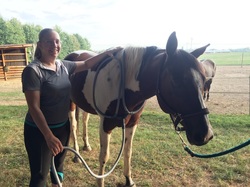 Michele giving Farletta her first treatment Michele giving Farletta her first treatment My horse, Farletta, recently received PEMF therapy via Michele Haman of Equilibrium Therapy. The change following the first treatment was amazing! Farletta has received both chiropractic and massage therapy; the PEMF has helped her achieve even greater progress! 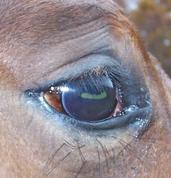 Farletta's uveitis eye days before it was removed. Note discoloration and constricted pupil as well as obvious signs of pain. Farletta's uveitis eye days before it was removed. Note discoloration and constricted pupil as well as obvious signs of pain. BRIEF HISTORY Farletta has had a chronic, right side problem for most of her life. I believe it stems from a pull-back trauma she suffered when she was three (she is now 13). Overtime Farletta developed a slew of problems such as chronic sciatic pain, difficulty developing true bend to right, shortened stride on right side (particularly right front leg), girthing issues, high/low heel syndrome (right front chronically higher heel than left), Equine Recurrent Uveitis (ERU,right eye), chronic poll tightness/pain, atrophy of right side muscles. This was despite receiving regular chiropractic work and classical dressage training. You'll note I mentioned ERU, the cause of uveitis is suspected to be genetic, a leptospirosis infection, or from injury. Holistic practitioner April Battles has long believed that uveitis can be a result of pull-back trauma, particularly in a young horse. She feels the pull-back (haltered horse tied to an immovable object panics and pulls back, often throwing their full weight against the halter) trauma results in separation and distortion of the “seams” of bones found in the horse’s skull which can result in chronic head pain and also pressure on the optic nerve thus causing uveitis. In Farletta’s case, I believe this is true as I know there is no uveitis in her family and she never had a lepto infection. There is no known cure for uveitis in horses. It is the number one cause of blindness in horses. Farletta had her diseased eye removed in 2012. The loss of the eye seemed to increase some of her body problems as she soon developed a head-tilt, I assume to improve her view with just one eye. The head tilt resulted in an unbalanced way of going which exacerbates her right side problems and also caused her to wear her front feet unevenly resulting in a toed-in stance. PREVIOUS TREATMENTS Farletta received her first chiropractic treatment at age 4, shortly after she started her under saddle training. She continued to receive chiropractic care from a total of three practitioners with minimal success. Farletta did improve after treatment but almost immediately, the tight muscles would pull everything back out of place again. As a result, she never made any real progress. Three years ago (age 10) I learned of the benefits of equine sports massage. Michele Haman of Equilibrium Therapy worked wonders for Farletta and eventually she had improved range-of-motion in her shoulder, less tightness/pain in her hind end and poll, and girthing issues lessened, and right-side muscle atrophy lessened. Despite the drastic improvements, she continued to have high/low heel syndrome, intermittent shortened stride (RF), and of course the ever-present head-tilt. PEMF TREATMENT Pulsed Electromagnetic Field (PEMF) therapy uses a strong electromagnetic field to affect tissue at the cellular level, increasing cell membrane permeability and facilitating cell repair. Large coils are placed on different areas of the horse. You can see the damaged cells respond to the electromagnetic field by twitching, as the tension in the damaged area is released, the twitching stops. The treatment can initially be a little intense for the horse (as it was when Farletta’s worst areas were worked on) but as the muscle tension dissipates, the horse relaxes visibly and may even fall asleep. RESULTS Farletta’s treatment lasted about 1 hour. This is what I noticed later that afternoon and in the days that followed Visual Observations - head tilt gone - willingness to put head down with right front foot forward (this almost never happened before) - greatly increased range of motion in right shoulder - straight tracking with right front (previously winged out slightly) - honest and deliberate heel first landing on right front (if this continues, it should reduce/eliminate high/low heel syndrome - reduction of atrophy in right shoulder - eye softer and clearer - significant reduction in facial tension - willingness to pick up front feet for cleaning without having to reposition/rebalance Under Saddle Observations
- there is a horse under my right seat bone! - greater willingness to develop correct right bend - walk-trot transition came from behind with little discussion and no argument! - I had to “turn down the volume” on my right side aids It has only been a few days but I am very encouraged by the results thus far. As it has taken Farletta years to get to the point she was at, I know that a single treatment will not cure her of all her right side issues, however, I believe with multiple treatments she will at some point be able to maintain a level of physical normalcy she hasn’t had in years. I am very curious about the possible applications of PEMF therapy for ERU horses. The physical problems that were helped by the PEMF treatment (all her right side issues) I believe are symptoms of damage caused by her pull-back trauma when she was young. I further believe that the ERU suffered in Farletta’s (now removed) right eye was also a symptom of the pull-back trauma. Therefore, I wonder if in the situation of ERU caused by trauma, perhaps PEMF therapy could provide much-needed hope for the future of ERU horses. It is too late for Farletta to answer this question, but we will discover if there are in fact benefits to ERU horses in the future. I will provide updates as Farletta continues to receive PEMF treatment through Equi-Librium Therapy. Today is the 10 year anniversary of the day Farletta (Follow Me Friend) came into my life. Here is an excerpt from my unpublished memoir. The day she became mine: April 21, 2006 The large trailer door swung open; old, rusted hinges protesting with squeaks and groans. Rain pelted my face as a cold, sharp wind blew through my too-thin hooded sweatshirt. It was late April in Kentucky but it was still quite cold. Add the clouds, rain and wind and it was one of those days which made your fingers turn red, numb and fairly ineffective at performing any task which required even a small degree of dexterity. Damp air seeped into my body where it would linger for hours, keeping me chilled well after I returned home and changed into dry clothes. I peered inside the cavernous stock trailer. It was large enough to hold several head of cattle which made the tiny mare tied inside seem all the smaller as she stood looking at me, a curious expression on her face. Having come from northern Illinois, the mare still held on to her shaggy winter coat while the horses here in central Kentucky had already let go of much of theirs. She was soaking wet from the rain splashing through the ventilation slats on the upper portion of the trailer. Dirt and grime stuck to the mare’s wet coat creating tiny rivulets of muddy water, resulting in dark streaks of filth running down her spindly legs. She was much smaller than I’d imagined, looking more like a small yearling than the three-year-old I knew her to be. The mare stood quietly as she took in her surroundings through her limited view out the trailer door. She lifted her head; her little body shook as a high pitched whinny erupted from her belly, exiting out of her dainty mouth. A nearby horse answered her call with a mildly interested whinny; the little mare responded with a robust and throaty nicker. She shuffled her feet, her hooves making hollow clonk-clonk sounds as she struck the hard wood floor of the trailer. I stepped cautiously into the trailer, talking to the little mare. Her eyes widened as she looked at me but she did not show fear. I spoke softly to her as I slowly approached her left side and placed my hand on her neck. The mare pushed her muzzle toward me and I let her sniff my hands. Seemingly satisfied I was a friend rather than a foe, she took a half step back and waited for me to untie her. Together we turned and stepped off the trailer into the cold wind and driving rain. Dief came out of the barn where he had been intently watching my interactions with the little mare. “Aahroooo-wooo-oooo!” He yodeled, greeting the new horse while hanging back a bit as he assessed the situation. With the little mare safely off the trailer, Dief trotted up to greet her while maintaining a respectful distance. “What do you think?” I asked him. “Aaahroooooo-woooo!” Dief answered, wagging his stump tail slowly from side to side. “I think so too.” Together we walked to a small paddock with a run-in shed. There was a pile of fresh hay in the corner of the small, three-sided building and the little mare went right to it, eagerly lowering her head to have a taste. I could see her ribs under her wet coat. I suspected winter had been tough on her. Her shoulders and hindquarters were slab-sided and underdeveloped. After eating a few mouthfuls of hay she walked over to me, stretching her neck while lifting her muzzle up toward my face. I blew softly into her nostril; she breathed in my scent before returning to her hay, daintily selecting a few long stems, chewing and swallowing them before taking a bit more. “Hey you,” I whispered softly to her “I like you.” The little mare lifted her head and looked at me as she chewed a mouthful of hay. I reached out and gave her a pat on the neck, and told her I’d see her later that evening. Stepping out of the shed I turned toward the gate where Dief was waiting patiently for me.
“Aahrooo-ooo!” He yodeled at me. “Yeah, I’m ready,” I said. “Let’s go.” I went through the paddock gate securing it behind me. Dief fell in line at my heels as we walked across the barn yard to my truck. “Oooo-oooo” Dief yodeled softly. “I agree,” I said with a smile. I was recently contacted by an owner who has difficulty with handling her horse’s feet. The mare gives her feet readily but will snatch them away and sometimes “half-heartedly kick” at her. Unfortunately, many people resort to force or punishment to “fix” this problem. However, this seldom yields positive or lasting results.
Any time you have a behavioral problem (in any animal or human), it is best to address it from a holistic perspective. This means taking into account all potential “inputs” into a given situation. For the horse this includes environment, relationships (horse and human), nutrition, training, overall health, etc. If you don’t resolve the cause(s) of the behavior, it will either return, or the horse will deal with the stressor with another negative behavior (for example: use a cribbing collar to stop a cribber, he then starts weaving or stall-kicking). In the case of a horse that does not like her feet handled, here are a few things you can look at to take a holistic approach to solving this behavior problem: Training – this may seem obvious but the first thing to look at is if the horse has been trained to have her feet handled. By trained I don’t mean you’ve tried a couple times and had some success at forcing her feet up. The trained horse understands exactly what is expected from her and will readily offer her feet with little effort on the part of the handler. Comfort—this refers to physical, emotional, and environmental comfort:
Balance—this goes with physical comfort and sometimes emotional comfort. If you have the opportunity, watch other people handle their horse’s feet. Pay attention to what the horse does when the handler asks for a foot. With an experienced horse, you will likely see the horse position himself for optimal balance before giving the hoof. This usually involves repositioning one foot before the horse offers the hoof being asked for. An inexperienced (or ignorant) handler will sometimes punish this behavior resulting in an insecure and un-trusting horse. It is especially important while training the horse that you give her the chance to reposition her feet for optimal balance. Pay attention, it is likely your horse is doing (or trying to do) this without your being aware! If you’ve addressed and solved (or ruled out) all of the above, it is possible you have a horse that simply doesn’t like having her feet handled or is a little (or a lot) spoiled. Having an extra set of eyes (a trainer or a competent horse friend) can help you identify the problem. Also look at other areas of your work with your horse. If there are other places where you have behavior issues (leading, tying, standing still while mounting) you may find working on these areas will solve your hoof-handling problems. Remember, training is a process and a well-trained horse is built on a broad and solid foundation. If there are holes or weak spots in your foundation, it will show up in other areas of your work together. Do you have a horse question? Click here to ask or visit Farletta Knows on Facebook! Three women wait quietly outside the paddock holding a large bay mare. The youngest of the women sits in the far corner of the paddock on the top rail of the black board fence; her crystal-blue eyes watch the mare intently. A middle-aged woman with fiery red hair and deep green eyes stands with her arms folded across her chest, leaning her left shoulder against one of the thick, wooden fence posts. Near the paddock gate, a slender woman with long, grey hair and multi-colored eyes watches the bay mare closely from her tattered old folding lawn chair.
Inside the paddock, the mare circles restlessly, working her soft, black muzzle back and forth along the ground. Her large belly swings gently side-to-side as she moves about the enclosure. She stops to paw at the ground, her sharp, heavy hoof sending clods of dirt and bits of grass flying out behind her. Looking up from her pawing, the mare snorts loudly and shakes her graceful head. She looks at the woman sitting on the fence; flaring her nostrils she blows out a deep breath before she begins circling once again... MORE |
AuthorCheryl L. Eriksen, MSW, Equine Enthusiast, EAGALA groupie and writer of interesting, educational and entertaining blog posts! Archives
April 2021
|

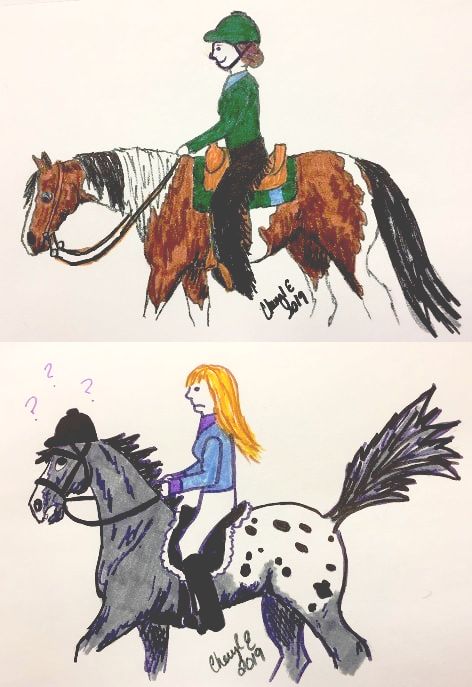
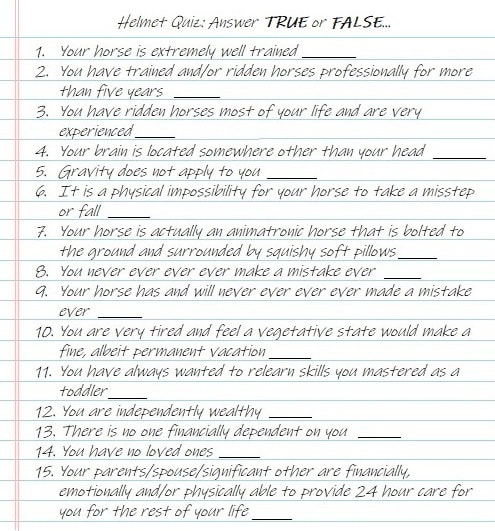
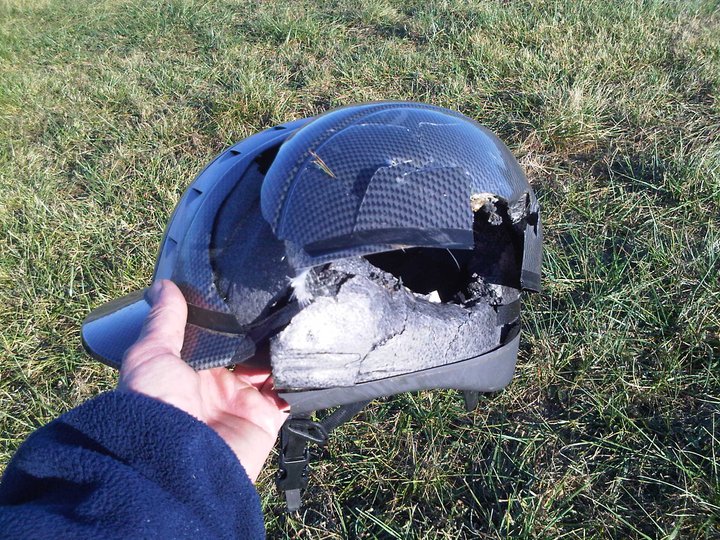








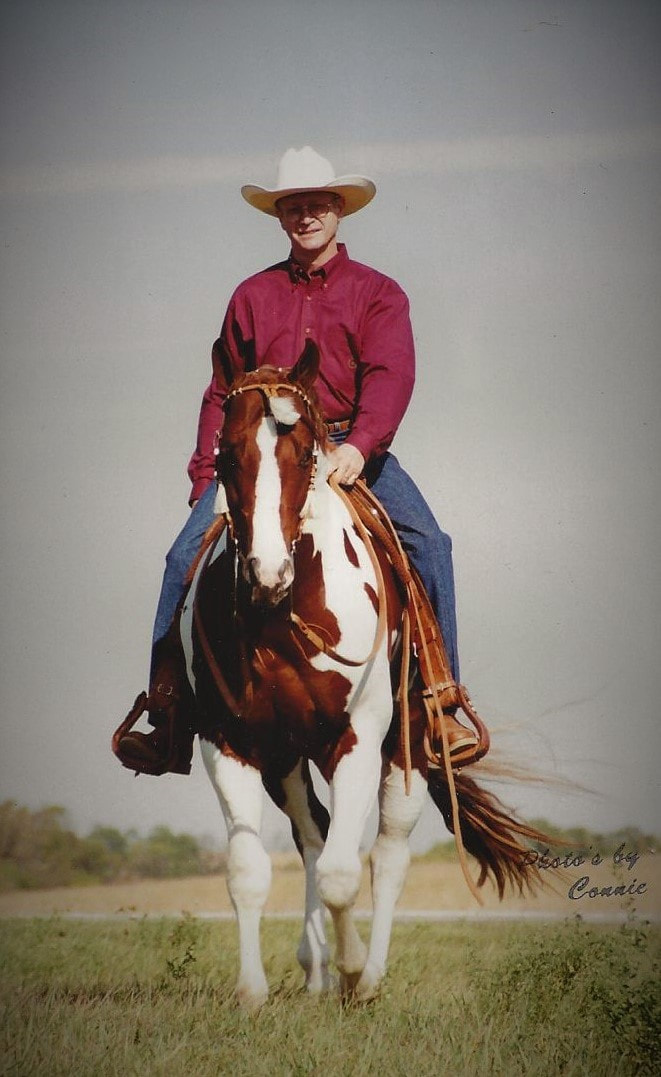




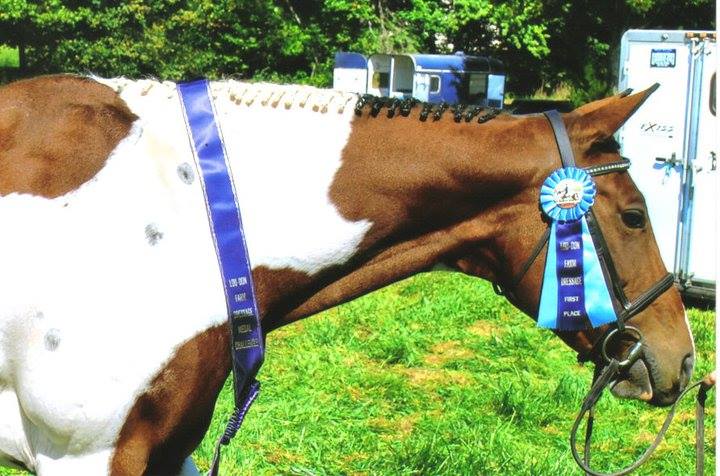
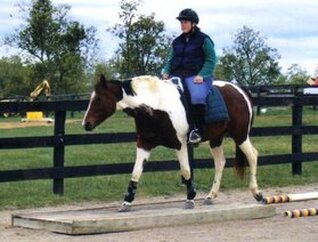



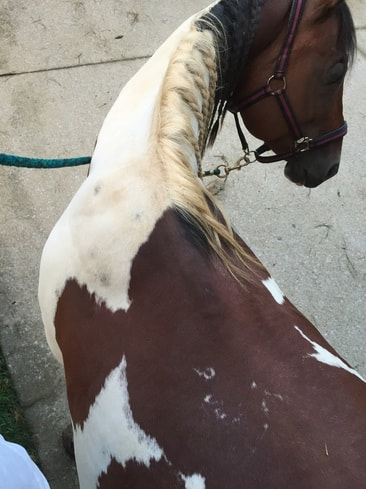
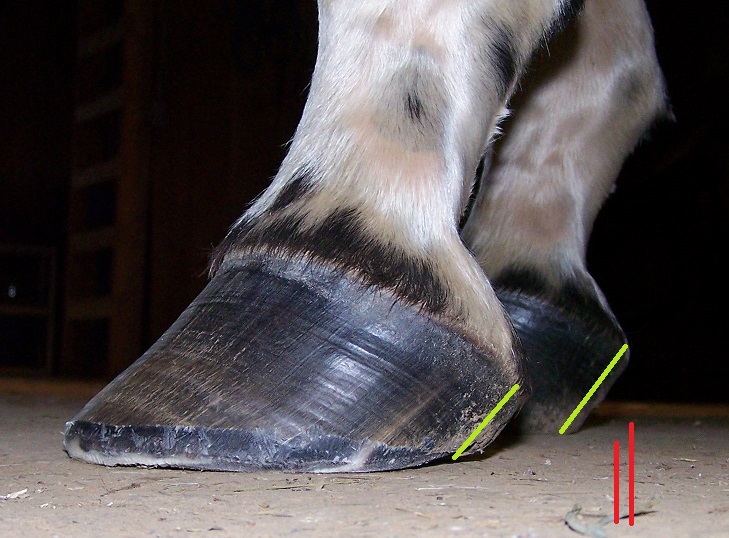


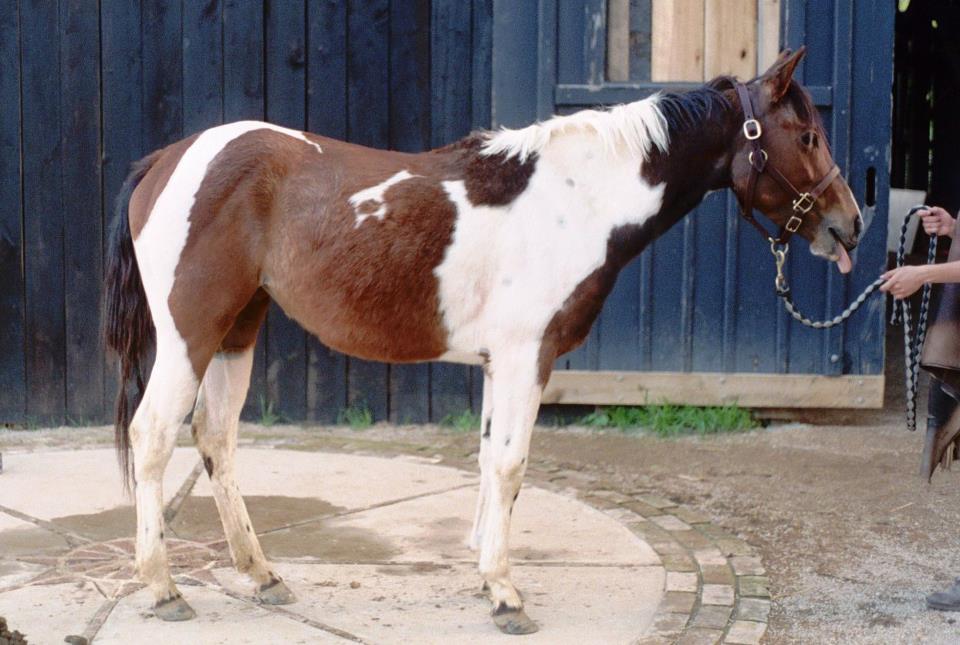

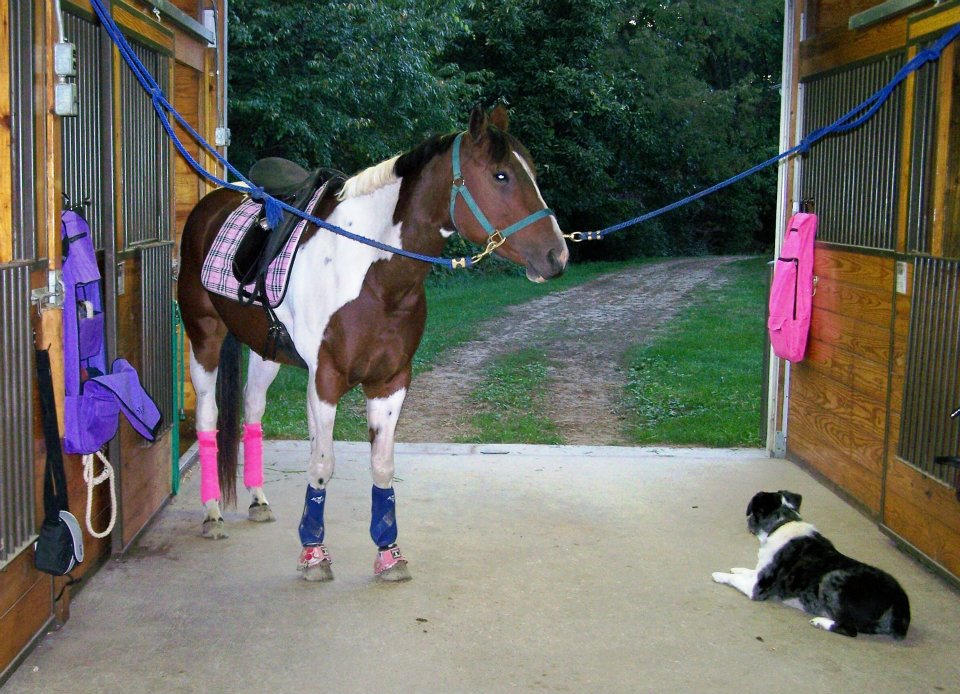

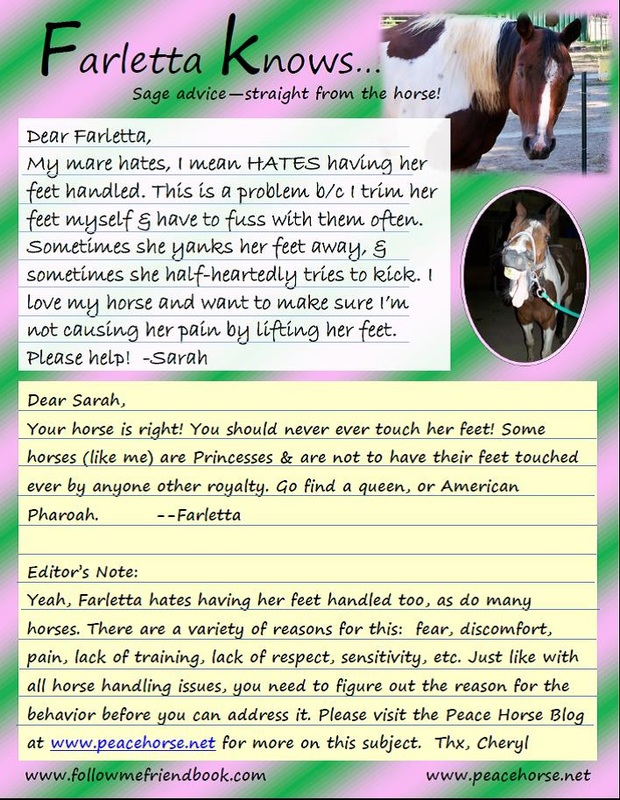
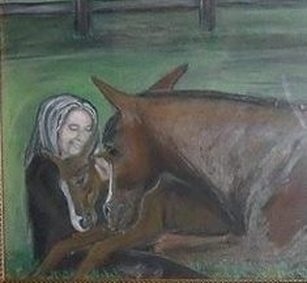

 RSS Feed
RSS Feed
